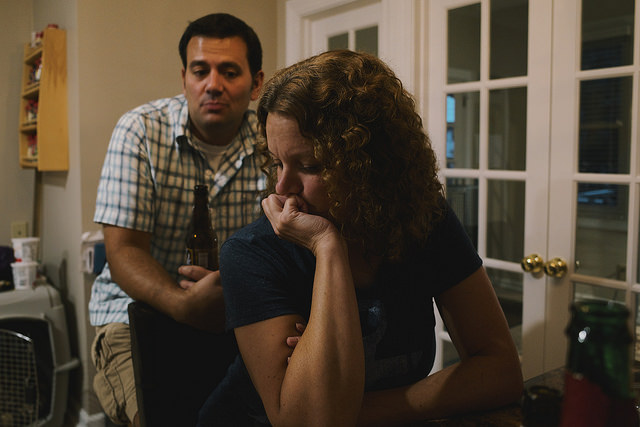
Those of us who were sexually abused as kids are an exotic breed. My husband would probably joke, “Exotic? That’s not quite how I’d define it…” Nevertheless, it’s true.
Exotic: strikingly, excitingly, or mysteriously different or unusual. Take “different” or “unusual” for a moment. I felt, as a child, a teenager and then early adult, that I had been plucked from a different planet and placed on Earth. I walked around inside this body, but the core of me, all that was me, knew I carried the weight of the shame of our family. I was borderless, lost inside myself and knew with certainty, no one could possibly understand.
So I compensated. I became proficient at many things: I became a pianist, guitarist, singer, equestrian, pilot, college student. Between my time in Africa and America I managed a medical station in the bush, held down two jobs in college, kept tabs on my far flung sisters, got hooked on the idea of love, married and had two children. Yet I always looked over my shoulder wondering who would expose me. I kept wondering who would tell the world I’m a fraud, damaged and perhaps beyond repair.
It took a jolt of reality—seeing my own children at risk—for me to embark on the voyage toward emotional health.
Healing takes time and tremendous effort; to dismantle the voices of the past, to embrace the truth that who I am now and to realise that the loving and lovable person that is me, is me because of my past.
My husband’s and mine life together has not been only peaches and cream. He has unwittingly bumped up against a vulnerability of mine that required caring discussion. He has had to learn what can trigger PTS in me and I had to learn to talk about it. I’m fond of saying “I flunked Mind-Reading 101.” But so did he. He can’t know these tender spots if I don’t tell him about them.
So, here are a few ideas worth considering if you are in a relationship with someone who was sexually abused as a child:
1. Accept your partner for who she/he is. You fell in love with this person and their depth is so much more than what you first understood when you met them. They survived and are able to love.
2. Safety in a relationship is critical. When they first disclose, or if you’ve just come up against a vulnerability of theirs, offer a break from the conversation if things get too heated. Make sure they know that you love them, but “taking five” is often a good idea.
3. Sometimes it will be your spouse who needs a “time out” when memories need managing. When calling “time out” assure your love that “It’s not about you. It’s not about us.”
4. Pay attention to what you’re feeling and put it into words. If you aren’t sure then say so instead of remaining silent. Silence is scary but responses (even imperfect ones) let them know that they are accepted. “I don’t know what to say” is better than saying nothing.
5. Face the problems and work on solutions while staying sensitive to your partner—sometimes it’s best to defer things a while. This is difficult stuff. Assure them you want to come back to the discussion, when you are both ready.
6. Don’t respond in kind and try not to take it personally (your partner’s anger is most likely aimed at the abuser). When you trigger something in your partner or a reaction seems disproportionate to what just happened, you’re probably dealing with a carryover from their childhood. It isn’t about you, but try and sort out what triggered the response together.
7. There will be some very stressful times, so learn how you can deal them. What will reduce anxiety for you?
8. You’re in a tough situation that requires a lot of emotional energy; you won’t do everything perfectly even if your partner sometimes expects that. Care for your own physical and mental wellbeing so that you can be a supportive partner.
9. Take care of yourself—you may want to get some counseling of your own (not couple counseling). Keep doing things that refresh and renew your spirit.
Your acceptance of her/his unique mosaic will confirm their newfound belief about their worth. Every time your spouse smiles, each time she/he is tender with words or a touch, they are expressing their trust in you. Learning how to trust again is one of the biggest hurdles your survivor faces, celebrate that gift.
You are loved by a courageous, fascinating, multi-faceted work of art. Know that your partner lives in gratitude for the safety that is you.
~
Relephant:
11 Ways to Be an Effective Partner When Your Girlfriend or Wife has Depression & Anxiety.
~
Author: Laura Landgraf
Editor: Katarina Tavčar
Photo: zenjazzygeek/Flickr










Read 2 comments and reply